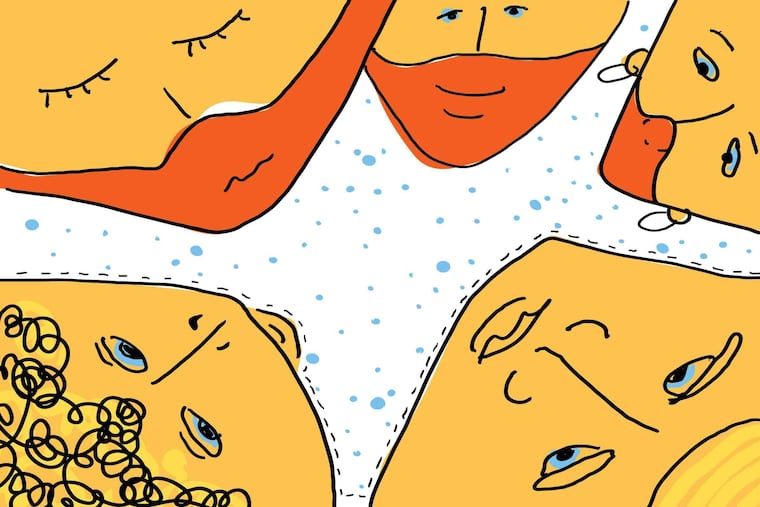Around someone who’s recovered from the coronavirus? You should still wear a mask.
Experts say you should continue to wear a mask, social distance, and regularly wash your hands around people you don't live with, even if one or both of you had had COVID-19. Here's why it's important

You’re headed to hang out with a friend who had the coronavirus. They’re fully recovered and are feeling great again, which means you can ditch the masks, go in for a hug, and leave worries of COVID-19 behind, right?
Unfortunately, that’s a fast “no."
“You can’t assume that because you had the virus, now you’re immune,” says Dr. Ala Stanford, founder of Black Doctors COVID-19 Consortium.
Experts say you should continue to wear a mask, social distance, and regularly wash your hands when visiting someone outside of your household, whether or not either of you have already had the coronavirus. Here’s why it remains important.
» READ MORE: How to do everything better right now: A collection of our most useful stories
We don’t know how long immunity lasts.
If someone gets the coronavirus, they’ll likely develop antibodies that give them some protection against future infections, but that protection is also likely to decrease with time.
According to the Centers for Disease Control and Prevention, there aren’t currently any confirmed reports of someone being reinfected within three months after initially getting the coronavirus. This could mean that antibodies against the virus protect you for at least three months, and you’re safe to hang out with someone maskless, after they’ve recovered, within that window. But there’s just not enough research yet to make that call, say experts.
“There hasn’t been enough time to study and follow COVID, and we have so much more to learn,” says Stanford. “We also know that there are different strains of the coronavirus that exist, and if you’re exposed to a different strain, you may have some protection, but it’s not going to completely obviate you from developing the virus.”
It’s also not clear if everyone who gets infected develops the same level of antibodies, or if, for example, you could be more immune to future infections if you had a higher exposure or more severe symptoms.
Because there are so many unknowns, masks, social distancing, and hand washing remain important.
“It’s a civic duty that we should all be helping each other out, and we have reports that are pretty conclusive that you can get reinfected,” says Dr. Eric Sachinwalla, medical director of Infection Prevention and Control at Einstein Medical Center Philadelphia.
The part that’s not conclusive, says Sachinwalla, is just how soon after recovery you could get reinfected.
A bonus: Wearing a mask and other protective measures may help prevent you from catching the flu, too.
» READ MORE: Coronavirus reinfections are real. Here’s what that means for controlling the pandemic.
A person could be feeling better but still be a carrier of the coronavirus.
Another major factor to consider: You can be contagious without realizing it. You could feel better, think you’re ready to hang out with others, but still be infected and pass the virus. And, as we know, many people who get the coronavirus never develop symptoms at all.
If someone tests positive or has symptoms, avoid hanging out with them until they meet the guidelines issued by the CDC. These can vary depending on several factors, including the severity of the illness and whether you are immunocompromised.
In general, the CDC says if someone had COVID-19 and had symptoms, they can be around others after:
10 days after symptoms first appeared and
24 hours with no fever without the use of fever-reducing medications and
Other symptoms of COVID-19 are improving. (Loss of taste and smell may persist for weeks or months but don’t require continued isolation.)
If someone tested positive and had no symptoms, they can be with others after 10 days passed since the original positive test.
When reuniting, again, remember your mask.
“If this is a person you’ve been living with, that’s really the only case that you don’t need to wear a mask after they’ve been isolated for the two weeks,” says Neal Goldstein, assistant research professor of epidemiology and biostatistics at Drexel University. “It’s really the only clear-cut case in my mind.”
Experts:
Dr. Ala Stanford is the founder of Black Doctors COVID-19 Consortium.
Dr. Eric Sachinwalla is the medical director of Infection Prevention and Control at Einstein Medical Center Philadelphia.
Neal Goldstein is an assistant research professor of epidemiology and biostatistics at Drexel University.